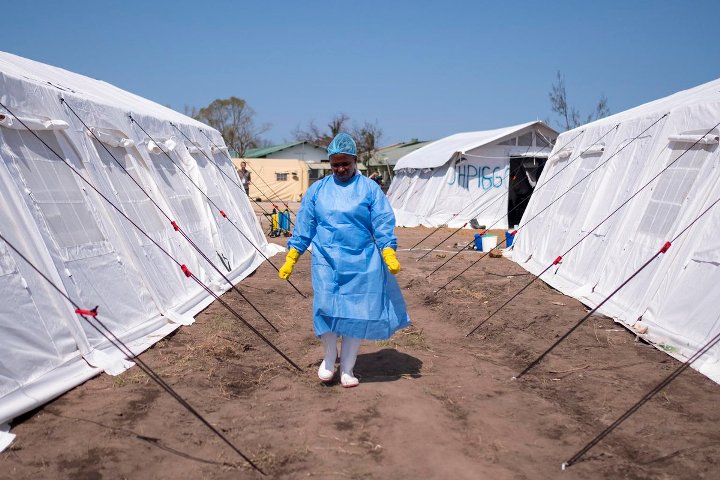WHO Warns of Rising Global Cholera Deaths Amid Worsening Outbreaks in 2024
According to WHO’s data, reported cholera cases rose by 5% in 2024 compared to 2023, while deaths surged by 50%, exceeding 6,000 fatalities.

The World Health Organization (WHO) has sounded the alarm on the global cholera situation, publishing new statistics for 2024 that reveal sharp increases in both illness and death from the disease. Despite being both preventable and treatable, cholera continues to spread rapidly across the globe, fueled by fragile health systems, climate pressures, and persistent gaps in water and sanitation infrastructure.
Rising Cases and Alarming Death Toll
According to WHO’s data, reported cholera cases rose by 5% in 2024 compared to 2023, while deaths surged by 50%, exceeding 6,000 fatalities. These figures, WHO warns, represent significant underestimates of the true burden, given limited surveillance and underreporting in many countries.
The outbreaks spread wider than before, with 60 countries reporting cholera cases in 2024, up from 45 countries in 2023. The disease burden was heaviest in Africa, the Middle East, and Asia, which collectively accounted for 98% of all cases.
Large-Scale Outbreaks and Regional Impacts
Twelve countries each reported over 10,000 cases, including seven nations that experienced large outbreaks for the first time in 2024. Notably, Comoros reported a cholera resurgence after more than 15 years without cases, underscoring the ongoing risk of global transmission.
In Africa, the case fatality ratio rose from 1.4% in 2023 to 1.9% in 2024, highlighting serious gaps in access to life-saving treatment and exposing the fragility of many health systems. Troublingly, one quarter of cholera deaths occurred in the community, outside formal health facilities, revealing critical weaknesses in community outreach and access to care.
Drivers of the Cholera Crisis
Cholera, caused by the bacterium Vibrio cholerae, spreads primarily through contaminated water and food. WHO stressed that ongoing challenges are intensifying the disease’s reach:
-
Conflict and displacement, which force populations into overcrowded camps with poor sanitation.
-
Climate change, which exacerbates flooding, droughts, and shifting rainfall patterns, disrupting water and food supplies.
-
Weak infrastructure, with millions lacking reliable access to clean water, sanitation, and hygiene facilities.
These overlapping crises are widening the gap between prevention needs and response capacity.
Vaccination: Progress and Persistent Shortages
Efforts to control outbreaks have been bolstered by the introduction of a new oral cholera vaccine, Euvichol-S®, prequalified by WHO in early 2024. Its addition to the global stockpile helped maintain supply levels above the emergency threshold of 5 million doses for the first half of 2025.
However, the global demand for cholera vaccines continues to outstrip supply. In 2024 alone, 61 million doses were requested, but only 40 million were approved for emergency use in 16 countries, with campaigns limited to single-dose regimens due to shortages. The temporary shift from a two-dose to a one-dose strategy, first introduced in 2022, remains in place as of 2025.
Continuing Outbreaks in 2025
Preliminary WHO data suggest the crisis is ongoing: as of early 2025, 31 countries have already reported cholera outbreaks. The persistence of these epidemics reinforces WHO’s assessment that the global cholera risk remains very high.
Urgent Call for Global Action
WHO stressed that the fight against cholera requires multi-level, long-term investments:
-
Safe water, sanitation, and hygiene infrastructure must be expanded to break transmission cycles.
-
Community engagement is essential to provide timely information and encourage early treatment-seeking.
-
Rapid access to treatment, including oral rehydration solutions and antibiotics when necessary, must be scaled up.
-
Vaccine production must expand significantly to meet surging demand worldwide.
-
Surveillance and diagnostics should be strengthened to guide targeted, effective responses.
WHO continues to support governments by coordinating field deployments, supplying essential medical kits, and working with partners to improve risk communication and public health systems.
A Preventable Yet Growing Threat
Although cholera is entirely preventable and treatable, its resurgence underscores deep inequities in global health systems. WHO’s latest report is a stark reminder that without urgent, coordinated action, cholera will continue to claim thousands of lives each year—most of them preventable.
ALSO READ
India Endorses UN's Path to Middle East Peace
Diplomacy Under Fire: Trump's Dinner Diplomacy Amid Middle East Tensions
Marco Rubio’s Diplomatic Tightrope Amid Middle Eastern Tensions
Diplomatic Balancing Act: Rubio's Critical Visit to Israel Amid Middle Eastern Tensions
Diplomacy on Edge: Trump's Meeting with Qatari Prime Minister Amid Middle East Tensions










